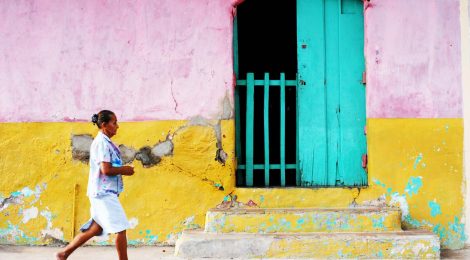
Introduction to Julia’s Blog
Hi there! Welcome to the blogging component of my website, where I will delve deeper into topics broached in class. In the following post, I will give a brief self-introduction and set the stage for my involvement with LACS 20.
Who am I and why am I here?
My name is Julia Vallone, I am a member of the Class of 2019, and my interest in international development is a relatively new. When I arrived at Dartmouth, I was convinced that I would major in Economics (in preparation for a career in finance) and minor in Italian (so that I could communicate with my Italian relatives). Eager to start down my predetermined academic path, I enrolled in Econ 1 and Italian 3 as soon as course selection opened up. When it came to choosing my third class, my strategy was to pick something that (1) satisfied a distributive and (2) fit into my schedule. I ended up committing to the first class that satisfied my criteria: “Intro to International Development” with Professor Friedberg in the Geography Department.
While at first I put the majority of my effort into Econ and Italian, Intro to International Development soon stole my interest. The class began by exploring (and critiquing) the western bias that characterizes various metrics commonly associated with development. From there, we began a historical analysis of the relationship between western “developed” nations and the nations of the global south. We took a look at import substitution industrialization in Africa, post-colonialism in the Caribbean, agri-revolutions in India, and Structural Adjustment Programs in the global south, among other things. Each day my eyes were opened to a history of international development that I had never before considered, a history of exploitation and abuse which was never covered in my textbooks. At the end of the course I could not shake the lingering ethical, cultural, social, and logistical questions surrounding the concept of development. I remember asking myself: Is true “development” even feasible?
Now, a year later, I have decided to explore this field further. In the remainder of my time at Dartmouth, I plan to pursue a “custom major” that combines human geography, government, and economics in hopes of better understanding the role development (specifically development driven by western intervention) plays in foreign affairs today.
Ultimately, it was this interest that brought me to enroll in LACS 20. The class first grabbed my attention with its title, “The Ethics and Politics of Development,” as it fit perfectly into the context of my custom major. While I enjoyed the breadth of information offered in Intro to International Development, I think that this course’s focus on Nicaragua will allow for a depth of study that was not previously feasible. Although I will not have the chance to gain first-hand experience in Nicaragua this December, I know that I will undoubtedly benefit from being surrounded by a group of enthusiastic individuals who are invested in this program and a professor with such experience in the field.
Feature Image: Nicaragua by Elaine Faith